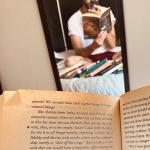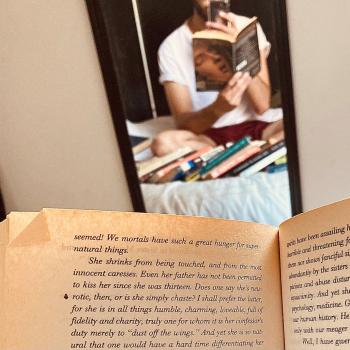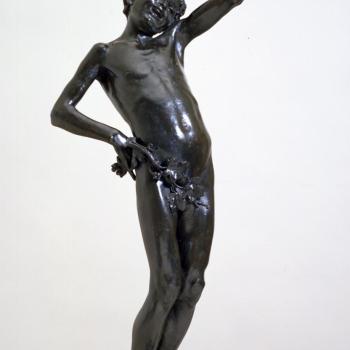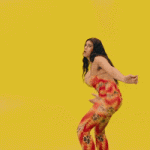
My first days as an undergrad were filled with a mix of excitement and bewilderment…somewhat like the feeling you get after downing a cheap cocktail mixed at a dorm party. As I learned of new concepts and terminology, and encountered people from all ends of the earth-both geographically and ideologically, my heart throbbed with a burning thirst to discover something new…what exactly? I couldn’t yet identify it…but I intuited that there was “something more”-something that would make life more vibrant, something that would eliminate my subtle yet ever-present sense of dissatisfaction, something waiting somewhere around the corner for me to discover it.
I was excited to use my new freedom as a young adult to go out and find that mysterious something which loomed around the corner, but my excitement was met with challenges as I began to look for companions on the journey. “Naive” was the euphemistic word choice that some classmates and professors used to explain away this burning curiosity which I tried to share with them. “Delusional” was a psychologist’s analysis, when I went to visit the university’s counseling office, to describe my search for a revelation “that was just not gonna happen…you have to be more grounded in reality and just learn how to live life and accept yourself.” Contrary to her counsel, I was convinced that I indeed was “grounded in reality,” the reality of my heart, that is.
The first “crack”
My professors spoke about freedom and the pursuit of happiness in the context of an ongoing power struggle between those currently in power and the oppressed. Happiness, then, would only be possible once the ideals of equality and political justice were achieved. While equality and justice are important goals to strive for, I intuited that happiness was about something deeper. I knew that as a human being, I thirsted for something greater…I wanted beauty, I wanted love, I wanted truth. But how can one experience this deeper happiness in the bewildering landscape of postmodern culture? I knew we needed…something else, something to crack through this narrow vision, something transcendent…which at that point remained a mystery to me.
It wasn’t until my sophomore semester that I found that crack, a space for me to breathe, to be myself, to ask those questions and let out those desires that until then were bottled up in the core of my being. My professor for the Philosophy of Human Nature, a required course, began class on the first day by telling us, “God made each of you for a particular reason, and it’s your job to find out what that is and do it.” Quite a change of pace from my other classes. It soon became clear to me that my professor, a vet who had been teaching for 45 years at that point, was someone who not only asked the same questions that I did about life, but also had discovered some, though not all, of the answers. I could tell by the way she spoke, by the passion with which she taught. I’d never seen someone who meant what they said as much as she did. I had never been looked at by someone who had such certainty that I existed for a purpose. I was not just another number in the system to her-I had a face, I had a story, I had a destiny…a destiny which soared higher than the ideals of political power or asserting my own autonomy.
Has it always been ” the way it is”?
It was through my relationship with her that I discovered that Truth does indeed exist, and that I can know it and love it. I also found out that I indeed was not delusional or naive-there have been a slew of other people throughout history who have devoted their lives to asking these questions and pursuing the Truth, to the point of being willing to die for It. I realized that I didn’t have to accept what my other professors told me because “that’s the way it is.” Well, that’s not the way it was. Their skepticism and aversion to speaking about the existential questions was not part of some deterministic evolutionary process which “solved” that eternal, burning curiosity in us, but rather was brought about by identifiable historical figures and events.
Roger Scruton writes in First Things magazine about how universities changed drastically in the mid-nineteenth century as a result of historical and ideological factors: “When Cardinal Newman wrote The Idea of a University in 1852, it was largely to uphold the old conception of the university, as a place apart, a quasi-monastic precinct opposed to the utilitarian mindset of the new manufacturing society. For Newman, a university exists to mold the characters of those who attend it. Immersing its students in a collegiate environment, and impressing on them an ideal of the educated mind, helps to turn raw human beings into gentlemen. During the course of the nineteenth century, however, the universities suffered a rapid change in their public reception. The decline of the religious way of life, the rise of the middle classes eager for social status and political power, and the demands for the knowledge and skills required by an industrial economy all put pressure on the universities to change their curriculum, their recruitment of students and teachers, and their relation to the surrounding culture. New universities were founded in Britain and America with an explicitly secular curriculum, designed to produce scientific minds that would sweep away the theological cobwebs in which all university subjects had previously been wrapped. In short, the universities have evolved from socially exclusive clubs, for the study of precious futilities, to socially inclusive training centers, for the propagation of needed skills.”
My relationship with my professor provoked me to study philosophy, theology, and history more in depth, thus breaking me out of the “utilitarian mindset” with which I was raised. And this allowed me to better contextualize the positions of my other classmates and professors. I came to find that postmodern philosophy emerged as a reaction against modernism. Toward the end of the 19th century, many were beginning to recognize the negative repercussions of markedly modern concepts like laissez-faire economics, rationalism, scientific empiricism, the appeal to human nature and universal truths, all of which shaped Western society and culture significantly. Urged on by the writings of Descartes, Kant, Locke, and other Enlightenment philosophers, absolute truths about humanity and reality were being dictated to the massed by those in power.
Unable to bear the limiting categories of modernity any longer, a new group of thinkers set out to dismantle these suffocating concepts and definitions. The postmodern project sought mainly to “deconstruct” the universal truths which they claimed were constructed by those in power, the elite. Postmodern thought is marked by the eradication of absolutes, moving past universally accepted notions of truth, nature, and morality, toward a greater emphasis on the individual subject and her perception of her own experiences. The more autonomy the individual is afforded, the further she can break out of the stifling boxes that modernity placed her in.
But is everything really relative? Can we really be free if we refer only to our own criterion in order to make sense of reality and our experiences? Can we truly be satisfied without adhering to universal truths? I came to the conclusion that humanity cannot flourish without the truth, nor can it progress without the desire for unity taking precedence over our individual wills. This conclusion was not the result of an ideological conversion, but rather was revealed to me over time through the relationship with my professor, as well as with others who witnessed to these truths through the way they lived. I soon began to see how my life blossomed as I followed these people who took my desire for truth, love, and beauty seriously. I was no longer waiting for some mysterious epiphany to show up “around the corner,” but had finally encountered it in the faces of these friends.
The Gems in PoMO
Many traditionally minded folk will write off postmodern ideologies as erroneous and dangerous threats to culture, going as far as labeling it a “culture of death.” But I propose that such condemnations are hollow and ungenerous. Postmodernity needs to be further engaged and examined, for it contains true gems. The postmodern project was inevitable-the human heart could no longer stand being subjected to theories and power structures that relied so heavily on the measure of pure reason, whose definition was determined by mere human beings..usually ones in power. The connection with the transcendent, that which fulfills and enlivens our humanity, was lost. The experience of reality as a sacrament of the eternal mystery, of Being itself, was eliminated by these reductive definitions and formulas.
Though some will accuse postmodern culture of promoting the cult of the “selfie”, I would argue that it isn’t selfish enough. The problem of postmodern culture is that is has yet to go to the depth of those essential questions which lie in the heart of each individual-who am I, and what will truly satisfy my desire for freedom and happiness? The culture, instead, teaches us to settle for half-baked answers, without taking the time and energy to look at the complexities and nuances of which constitute our being. “Be who you are, and be proud of it!
” But how can I be so sure that I am who I claim to be? Can I really define my own destiny? Do I possess the ability to satisfy my seemingly unquenchable desire for fulfillment?
I see this existential insecurity in the faces of young people in their numerous Instagram selfies, anxiously awaiting more likes and comments, thirsting for a kind of love that neither they nor their followers can fulfill. I hear it in the cries of protesters who, while condemning their iniquitous enemies, desperately attempt to prove their righteousness and drown out the reality of their own self-seeking actions and tendencies. We rely on countless technologies, causes, and programs to try to convince ourselves that we are fine the way are…but is this enough?
It takes a living witness…
My dear philosophy professor was a mere human being, with flaws and limitations like the rest of us, but the way she looked at me, the way she approached her work, was marked by a transcendent quality, an air of authenticity, and a glimmer of eternal beauty that far surpassed the confines of her own limited nature. I’m convinced that what postmodern culture needs more than revolutionaries and political leaders is genuine witnesses who teach us to understand our humanity, our hearts, and all of reality, not indoctrinating us with the right definitions or answers, not by imposing their ideas on us, but by the way they live.
I seek to continue the example of my professor in my work teaching religion and philosophy to high school students. I find that they are suffocated, their hearts’ desires stifled by noise, distractions, promises of success and fame, filtered through social media. I seek rather than to indoctrinate, to propose a way of life, to propose what I have seen: namely, that our hearts thirst for something greater than power, than fame, than comfort. For some, this falls on deaf ears, being tuned out by concerns with grades and future success, or just by plain old apathy and boredom. But for others, this is the message they’ve been waiting to hear, just like I was back in my freshman year of college. This blog is a continuation of my work, my mission: seeking to draw out the true gems in our culture and to cracks open spaces for those gems to grow into full maturity. Let’s see what we find.
photo from: https://bluehealthsolutions.com/wp-content/uploads/2016/10/stargazinginTN.jpeg















